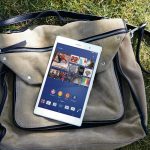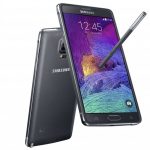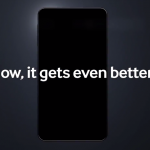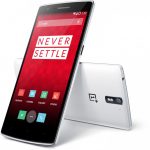Hey, do you know that Sony also has new Android flagships?

With all eyes on Samsung, which just unveiled Galaxy Note 4, Galaxy Note Edge and Gear VR, I am genuinely surprised that Sony has decided to showcase its new flagship Xperia devices on the same day as its South Korean rival. Why? Because Samsung commands more attention from the tech media, due to its Android pack leader position. And that can only leave Sony fighting for scraps.
Nonetheless, mere hours after Samsung's Unpacked 2014 Episode 2, Sony took the wraps off its new Xperia Z3, Xperia Z3 Compact and Xperia Z3 Tablet Compact. Oh, there's an Xperia E3 too, which is designed to compete in the low-end market, like Nokia Lumia 530. But, let's talk about the premium Xperias now, which are far more intriguing.
Logitech introduces cross-platform keyboard for phones, tablets and computers

Many people these days have multiple devices -- a computer, smartphone and tablet is not unusual in any home. Desktops require a separate keyboard, while the other two rely on an on-screen model, which can be annoying at times. Now Logitech wants to solve that issue with one solution for all platforms.
The Logitech Bluetooth Multi-Device Keyboard K480 can work with up to three different devices. A switch allows for movement between each, with a holder for your smartphone or tablet. It's a full-size desktop keyboard though, so users shouldn't feel cramped, as they did with previous tablet and handset keyboards.
Mystery fake cellphone towers discovered across America

Fake mobile phone 'towers' dotted across the US could be listening in on unsuspecting smartphone users according to recent reports. And -- tin foil hats on, everyone -- nobody knows who's behind them.
Security company ESD America discovered 17 of the fakes called 'interceptors' whilst testing its secure Android phone. The towers can attack devices via the baseband chips that allow them to communicate with their networks and can, says ESD, eavesdrop or even install spyware.
Meet Samsung Galaxy Note 4 and Note Edge

Samsung is single-handedly responsible for creating the phablet category three years ago with the original Galaxy Note. Back then, big smartphones were believed to be nothing more than a niche, with no chance of ever enjoying mainstream approval. At first, I was actually one of the non-believers. But, as every Galaxy Note iteration has proved time and time again, consumers are actually quite fond of the idea of touching a big screen day in and day out.
But, the phablet market has changed dramatically since the original Galaxy Note was released, with more and more Android vendors competing for a slice of the pie. Heck, even Nokia got in on the action, representing Windows Phone, late last year with Lumia 1520 and Lumia 1320. Despite the increased competition, Samsung continues to be viewed as the pack leader, thanks in no small part to the dedicated features its flagship phablets pack. So, what does this year's Galaxy Note has in store?
Secure your Apple iCloud account by enabling two-step verification

Unless you've been completely avoiding the news over the past few days, you will have heard about Apple's little problem with nude photos being stolen from celebrity accounts. The company has strongly denied that there has been a security breach, but in a statement it advised its customers to check the strength of their passwords as well as enabling two-step verification.
Two-factor authentication -- also known as two-step verification -- is a stronger method of security because it relies not only on something you know (your password), but also something you have (like your iPhone). Sounds good, but how do you do about doing it for your Apple account?
Isn't Siri just terrible in Microsoft's Windows Phone ads?

The advert wars continue with comparative ads aplenty fired at each other by the big tech giants, and the latest one extols the virtues of Microsoft's voice assistant compared to Apple's effort.
The "mirror mirror" commercial (spotted by the Verge) tries to promote the natural voice and manner of Cortana, and contrast it with Siri, which is made to sound clipped and robotic in comparison.
Say goodbye to invites -- OnePlus One will go up for pre-order
What to expect from Samsung Galaxy Note 4

Samsung will announce the successor of the popular Galaxy Note 3 tomorrow, at a press event dubbed Unpacked 2014 Episode 2. This is the second most important unveiling of the year for the South Korean maker, after Galaxy S5. Naturally, that means that our expectations are high for what will arguably be the Android phablet to beat in the second part of 2014, if the success of its predecessors is of any indication.
So far, Samsung has officially disclosed little about Galaxy Note 4, only revealing the silhouette of the new phablet, in one of its most recent teaser videos, and not much else. That is far from a complete picture, so here is what else you can expect from Galaxy Note 4.
Apple finally opens up about why it rejects certain apps

It may have been something of an unknown quantity for years now. Just why was a particular app denied entry to the App Store? Now Apple -- the company so famed for its secrecy -- has finally laid its cards on the table and revealed the most common reasons apps are rejected. Taking a snapshot from the last week of August, the new Common App Rejections page on Apple's Developer site details the top ten problems that prevent apps from making their way to the App Store. Accounting for more than a quarter of rejections (14 and 8 percent respectively) are apps that do not have enough information and those that exhibit bugs.
Six percent of rejected apps fell foul of terms in the Developer Program License Agreement -- although no further breakdown is given -- and the same percentage of titles were given the thumbs down for not meeting Apple's exacting standards. "Apple and our customers place a high value on simple, refined, creative, well thought through interfaces. They take more work but are worth it. Apple sets a high bar. If your user interface is complex or less than very good, it may be rejected". Apps that are either misleading or similar to other apps, and those with inappropriate names and artwork were also stopped in their tracks, each accounting for 5 percent of vetoed apps.
Your personal porn is public

The Internet is buzzing about celebrity nude photos pilfered from iCloud. The problem is bigger than Apple's security, if breached, which I doubt. Behavior is the larger concern, and how people adapt during the contextual cloud computing era. If your phone automatically syncs pictures or videos to any cloud service -- Google Photos, iCloud, OneDrive, or another -- you must assume that nothing is private.
That personal nude video you shoot on the HandyCam is very different from the one taken on Galaxy S5, iPhone 5s, or another device. I should be stating the obvious, but given pervasive attitudes about the Internet -- where people feel safe browsing in the sanctity of their domicile or WiFi coffee shop -- carelessness must be the presumption. These leaked celeb nudes, if real rather than Photoshopped, are good example. Simple rule: Don't shoot any photos or videos on a cloud-connected device you don't want everyone to see.
Lumsing Prophet Bluetooth Speaker: a powerful wireless audio solution [Review]
![Lumsing Prophet Bluetooth Speaker: a powerful wireless audio solution [Review]](https://betanews.com/wp-content/uploads/2014/09/lumsing_prophet_bluetooth-150x150.jpg)
We seem to have had something of a run on Lumsing products recently, but the focus has been on power -- both in-car and portable. Now it's time for something a little different from the same company: a wireless Bluetooth speaker. It can be used with phones, tablets, laptops and anything else that chucks out a Bluetooth signal; actually, there's a 3.5mm jack, so there is a wired option too. As this is, primarily, a wireless speaker, it should come as no surprise that it features a built in rechargeable battery. Charging comes via a USB port which you can connect to either a computer or a phone charger.
Let's skirt over the fact that the instruction manual provided with the speaker has a spelling mistake ("Propeht" rather than Prophet) and look at what the Prophet has to offer. This is a budget speaker, but its looks don’t give this away. The disc shape hides two speaker cones, surrounded by a silver trim. Smack in the middle of the speaker grill is a play/pause button which allows for music playback control, and also doubles up as a pick up/hang up button for your phone -- as well as play music from your phone, the Prophet can also be used to make (very loud) hands-free phone calls thanks to the built in microphone.
Here's what you can expect to see at IFA 2014

The rejuvenation of the tech scene at this time of year is heralded by one of the oldest and largest trade shows on the circuit, with Germany taking centre stage for Internationale Funkausstellung Berlin -- known simply as IFA.
At IFA 2013, ITProPortal witnessed the unveiling of the Sony Xperia Z1, realized that convertible laptops are here to stay, and learned that no-one is impressed by Samsung's Galaxy Gear. This year we're looking forward to seeing the year's developments in wearable tech. And I'm not just talking smart watches. This year we're talking infrared thermometers, Bluetooth home cinema speakers and something called the "D30 Smart Skin".
Could buying Cyanogen give Microsoft some smartphone credibility?

I'm not going to retread old ground too much here, but there's no getting away from the fact that Microsoft has something of an image problem when it comes to smartphones. But this could be set to change. The word on the grapevine is that Microsoft -- possibly in conjunction with the likes of Yahoo and Amazon -- is interested in joining forces with, or even, buying Cyanogen Inc, purveyor of some of the finest Android ROMs known to humanity. It's a branch of Android favoured by handset owners who live and breathe tweaking, who want an OS custom made to fit them like a well-tailored suit.
Little is known about what form any future arrangement might take, or how far talks have got so far. But we do know that Cyanogen Inc has met with Satya Nadella -- as reported by The Information. It would be interesting to see where this could go. There are two possible avenues that immediately spring to mind. The first -- and probably the least likely -- is that Microsoft might consider creating custom Windows Phone ROMs. This seems somewhat improbable, but there's another option: Microsoft could be looking to muscle in on Google's Android territory. This is not as far-fetched as it might first sound.
What you really want is iPhone 6 with sapphire display

What do you want to see most on the new iPhone 6 (if you care about Apple's upcoming device, that is)?
That was the question posed by Usell.com in a poll of a thousand mobile owners across the US, and the resoundingly top response was the much talked-about sapphire screen. 45 percent of respondents said they wanted a super-tough sapphire display, with 50 percent of Android and iPhone users saying they would ditch their current smartphone for the iPhone 6 if it came with such a screen.
Apple and Samsung may have to settle in patent litigation

Apple and Samsung are reportedly close to reaching an amicable conclusion in a long-winded patent litigation battle after the US firm lost another court case against its rival.
The familiar US District Judge Lucy Koh ruled against Apple's bid to impose a sales ban on some older Samsung smartphones in the US and it follows the decision to drop all suits against each other in a range of different countries in the past few months.
Recent Headlines
BetaNews, your source for breaking tech news, reviews, and in-depth reporting since 1998.
© 1998-2025 BetaNews, Inc. All Rights Reserved. About Us - Privacy Policy - Cookie Policy - Sitemap.
